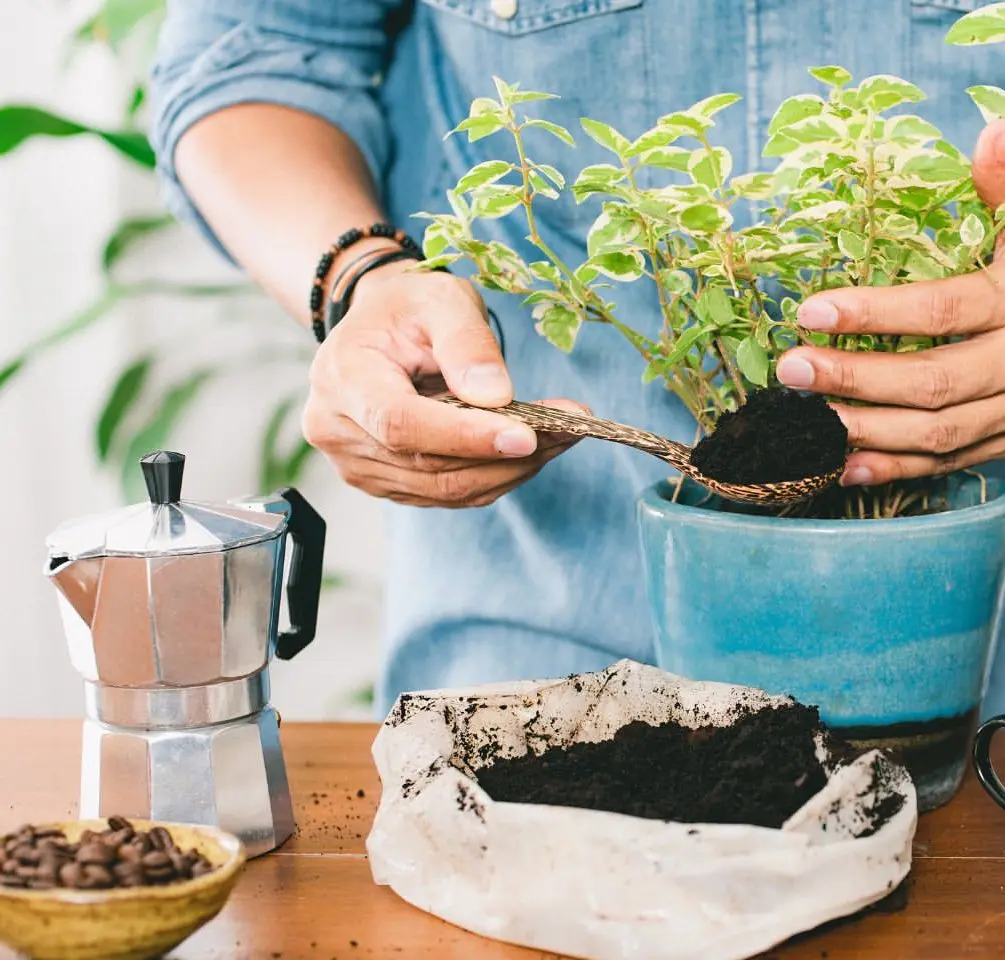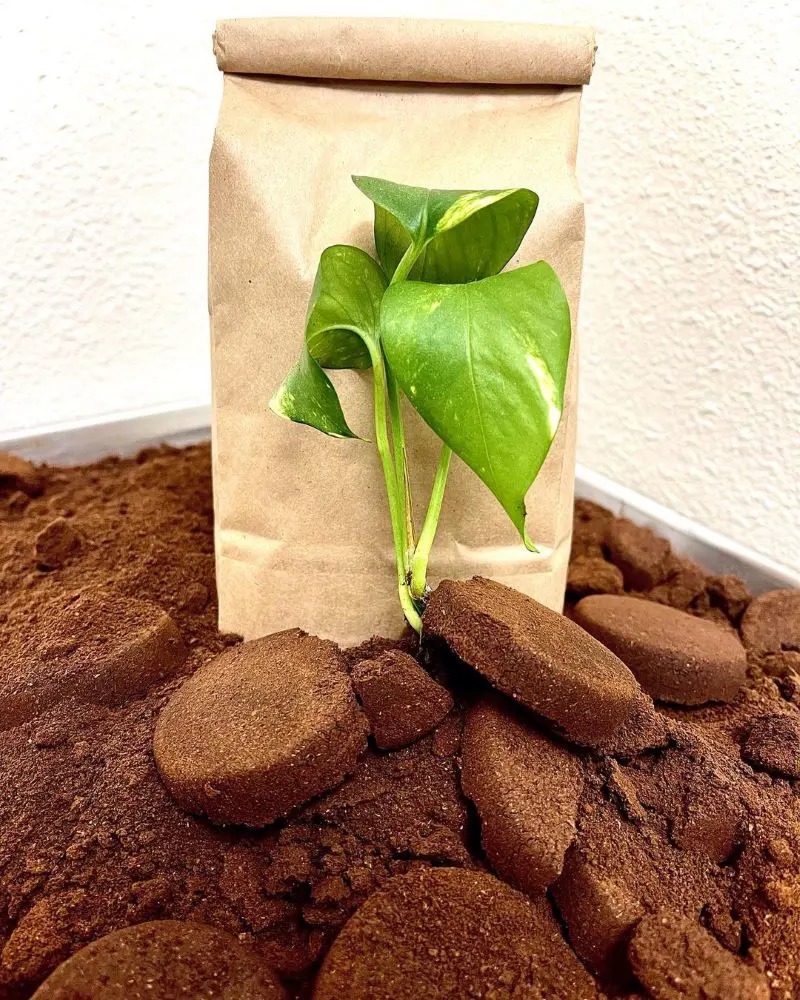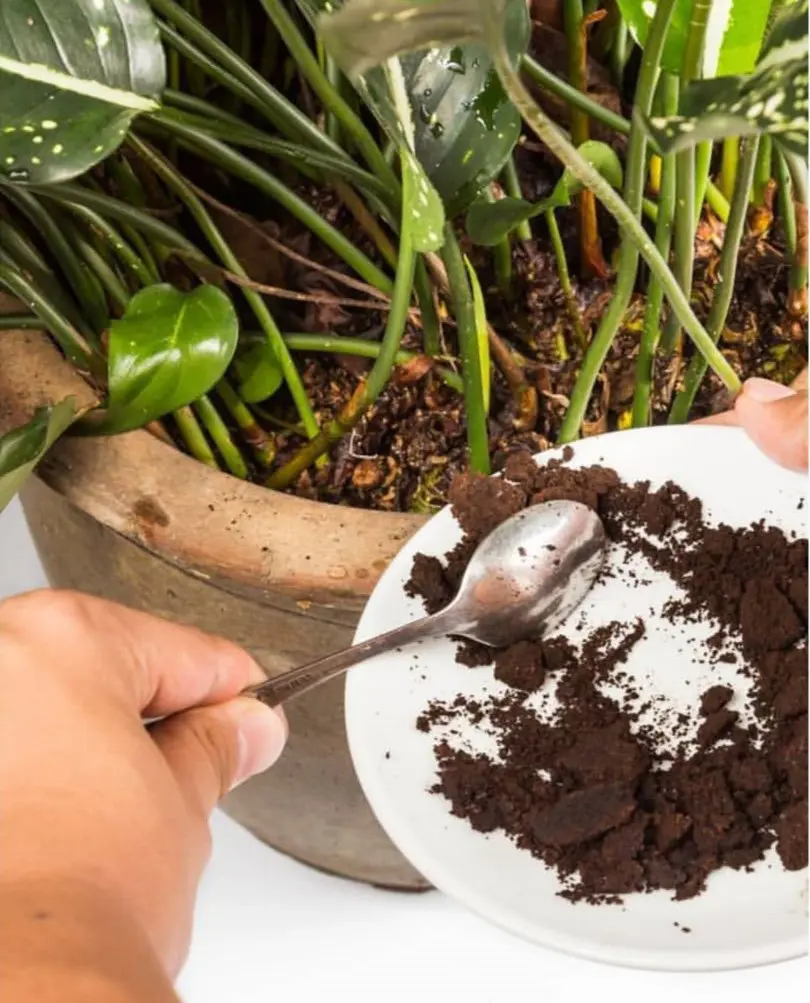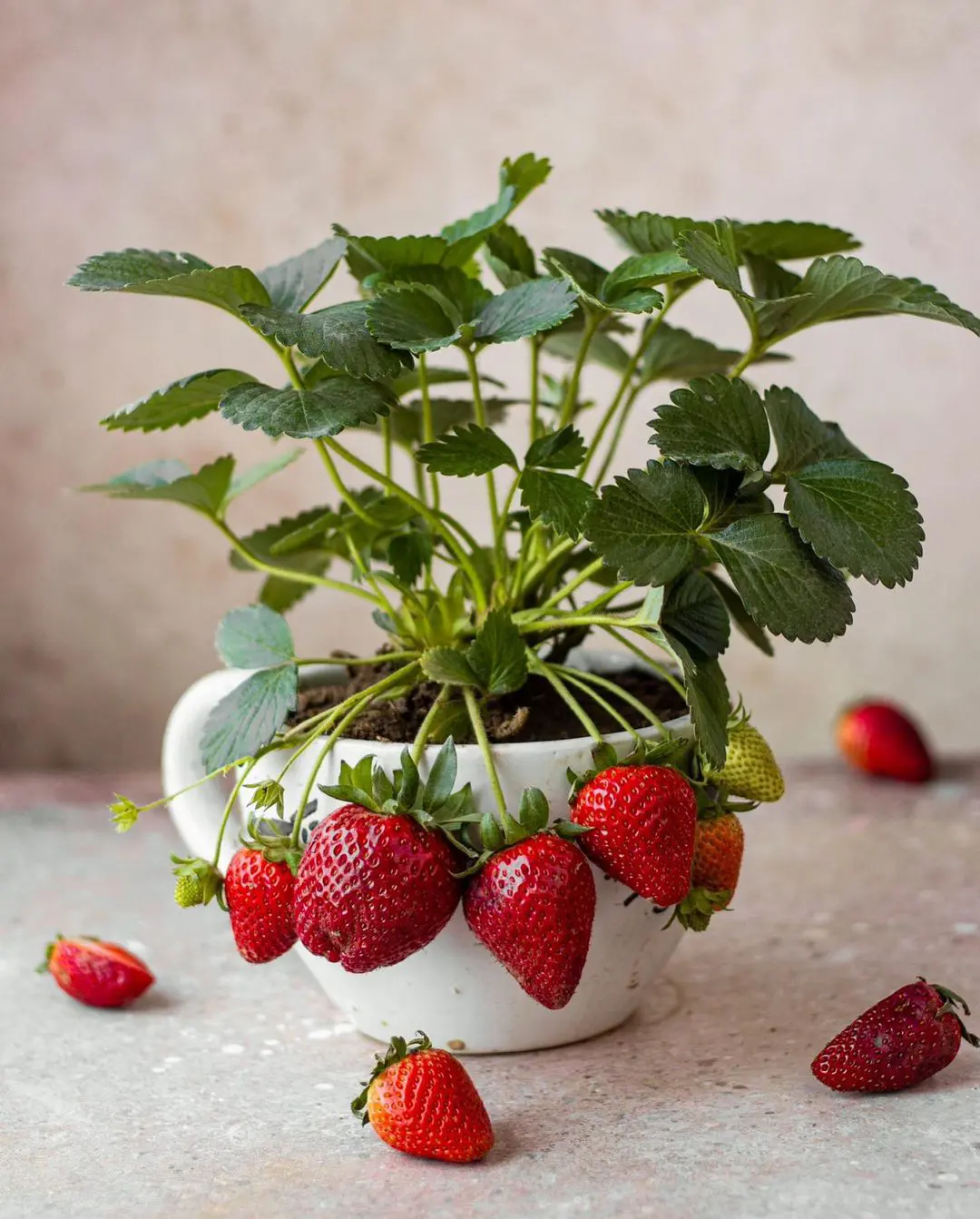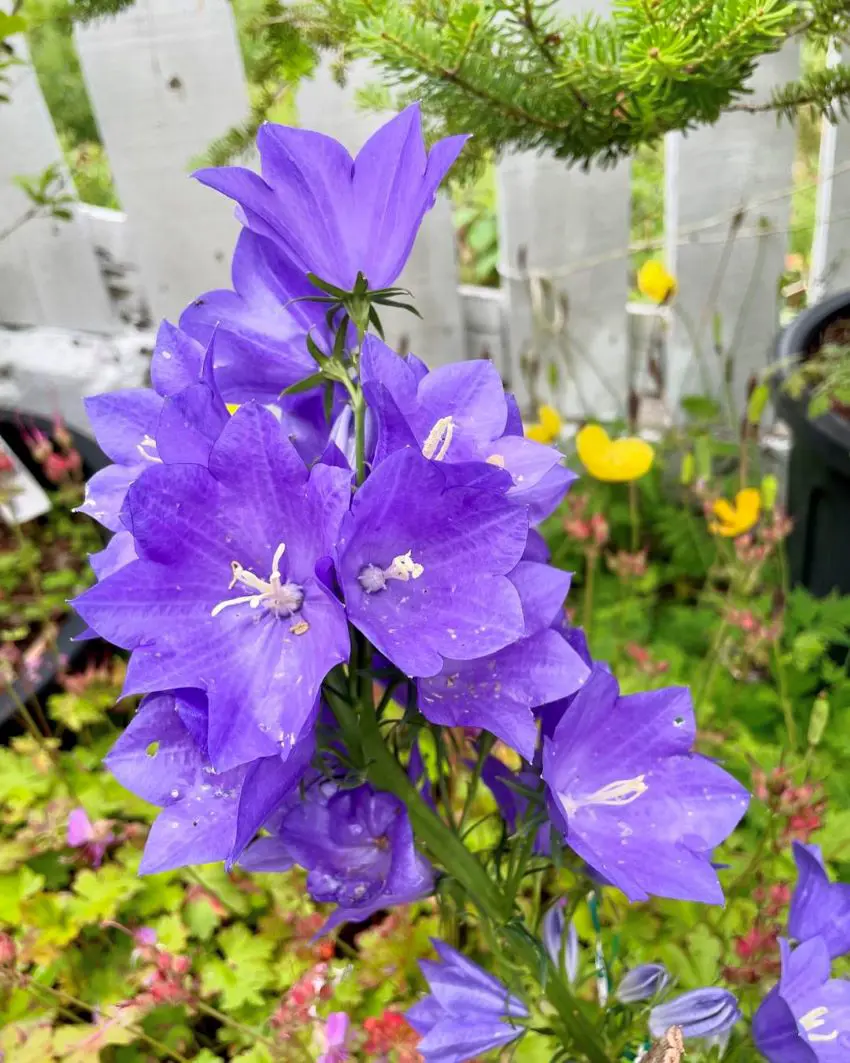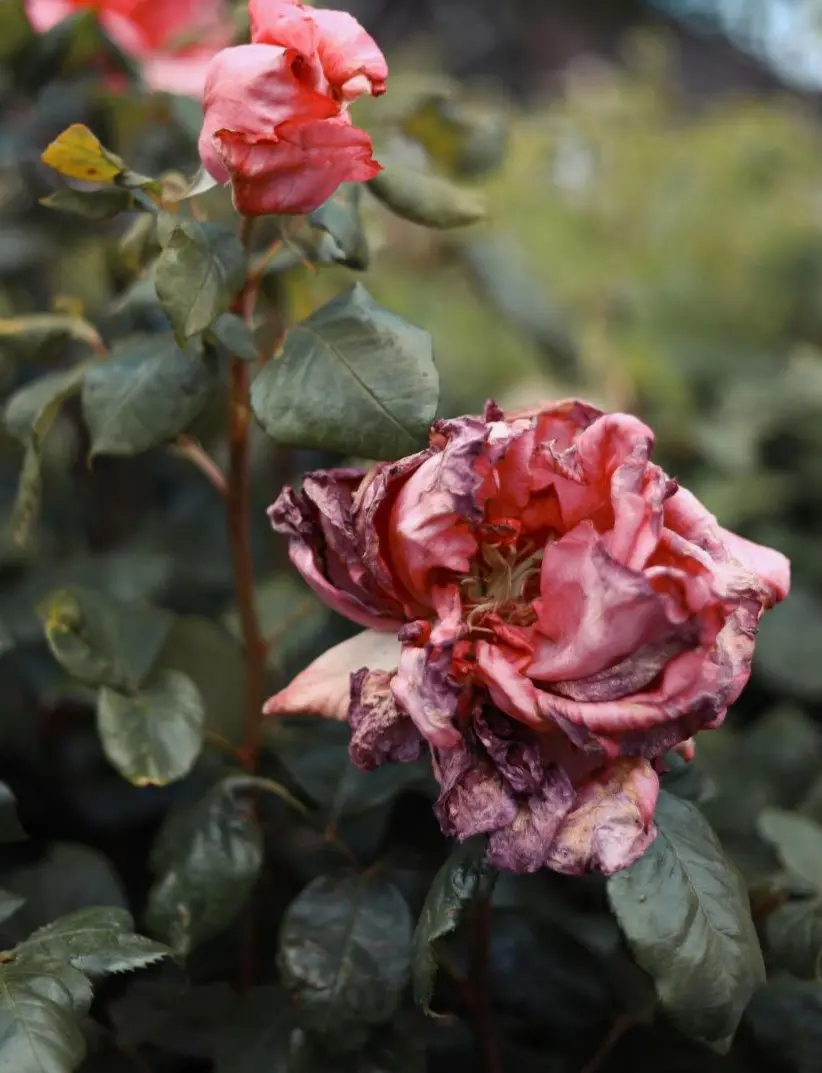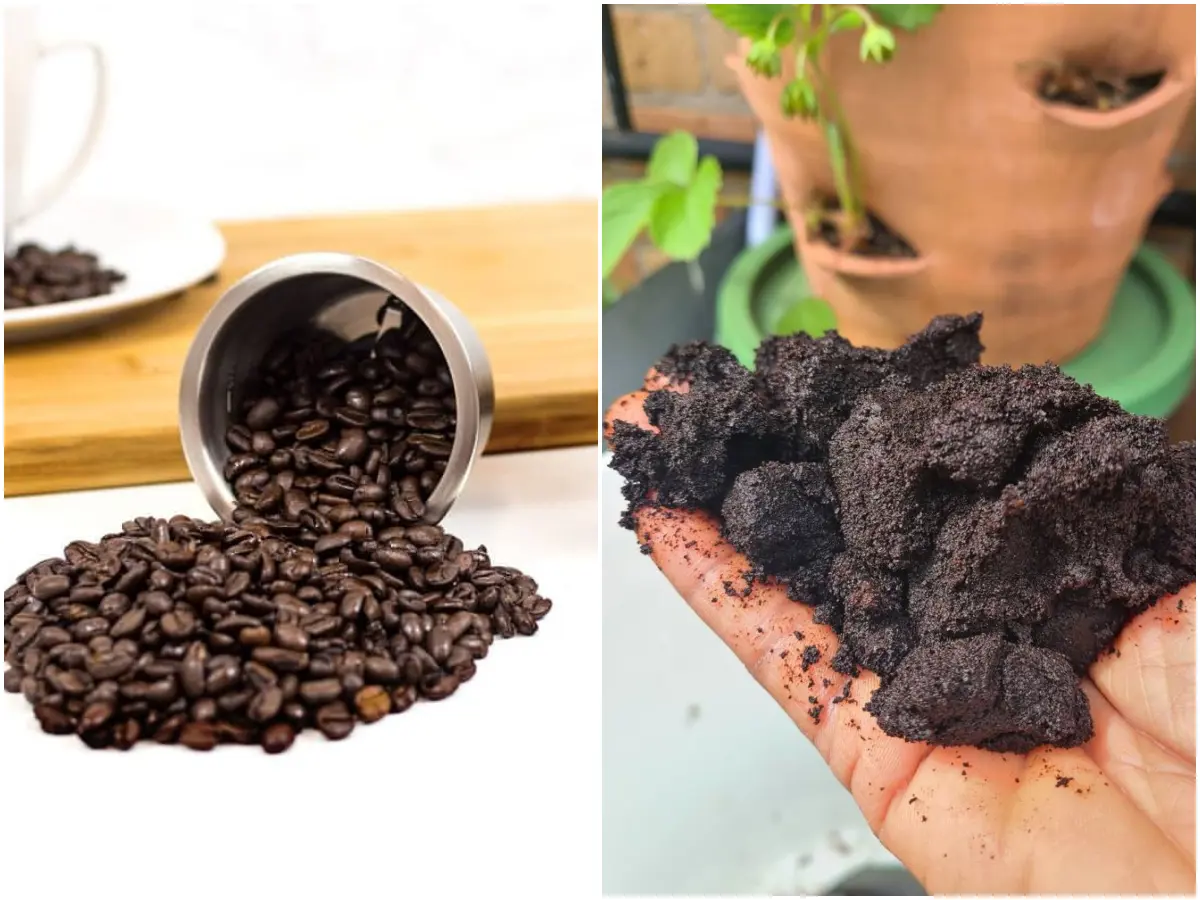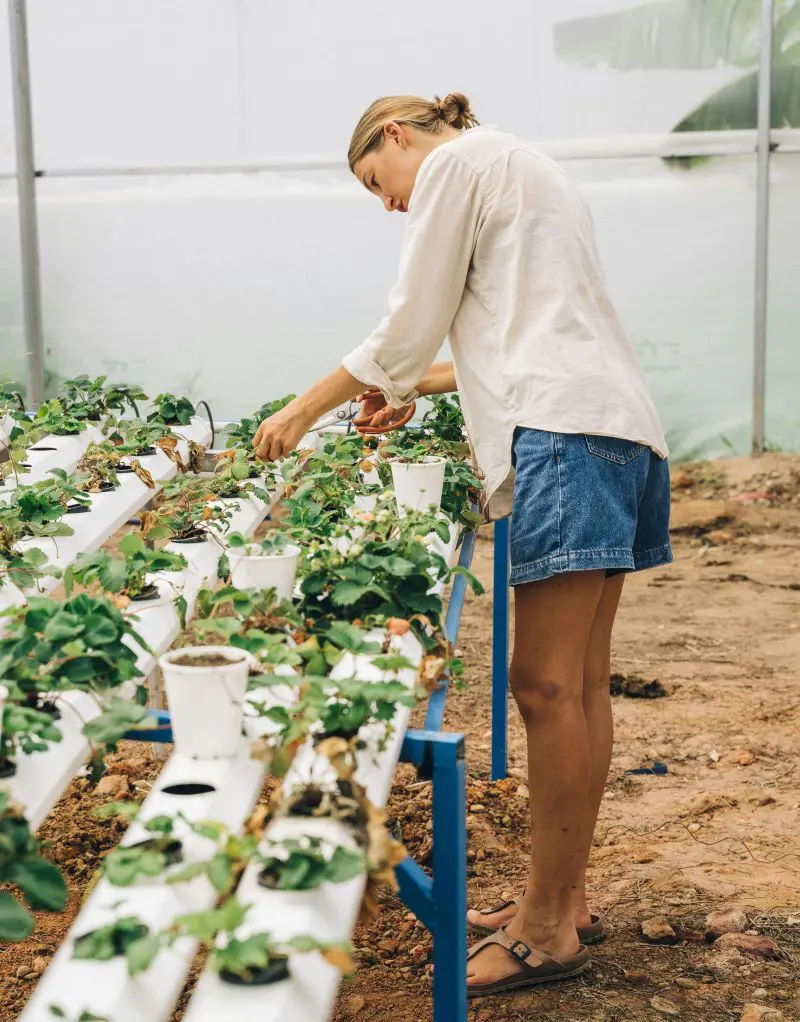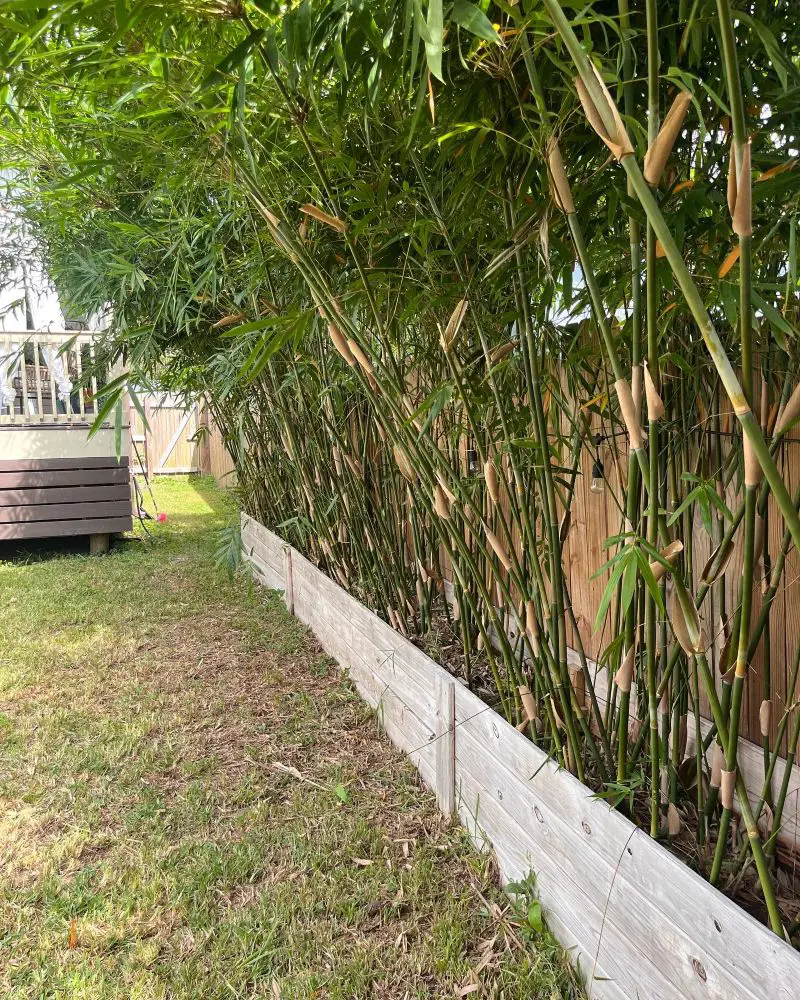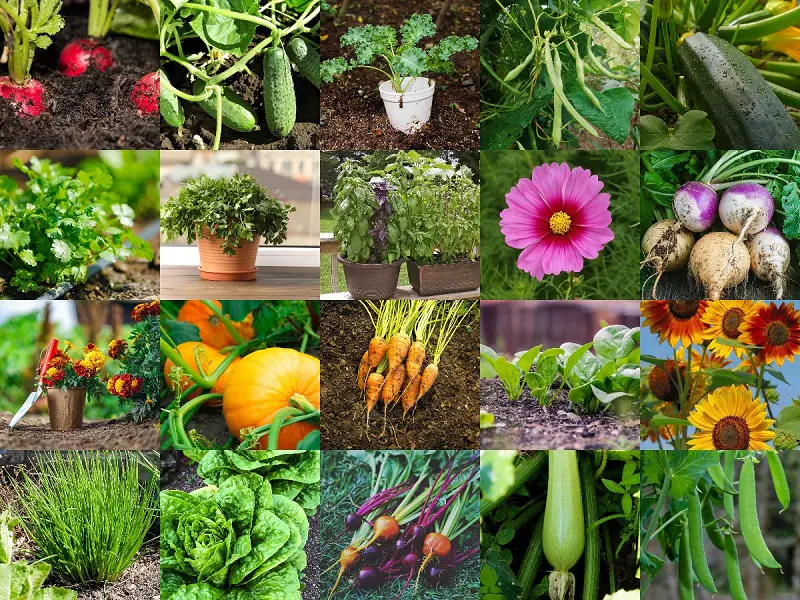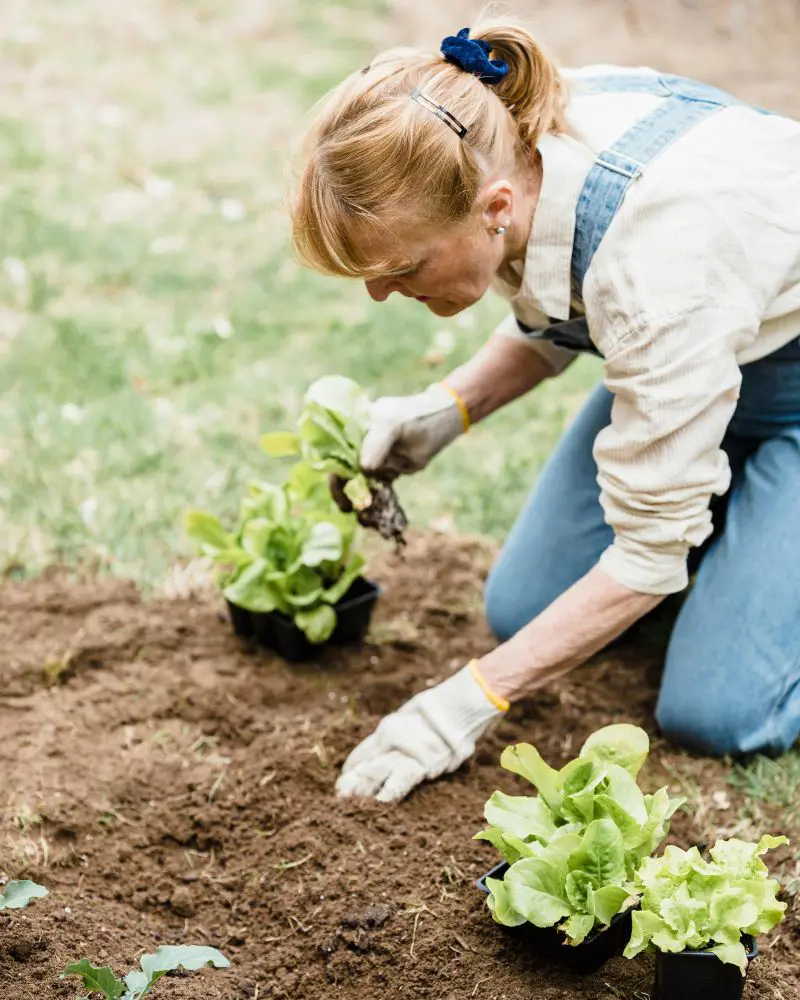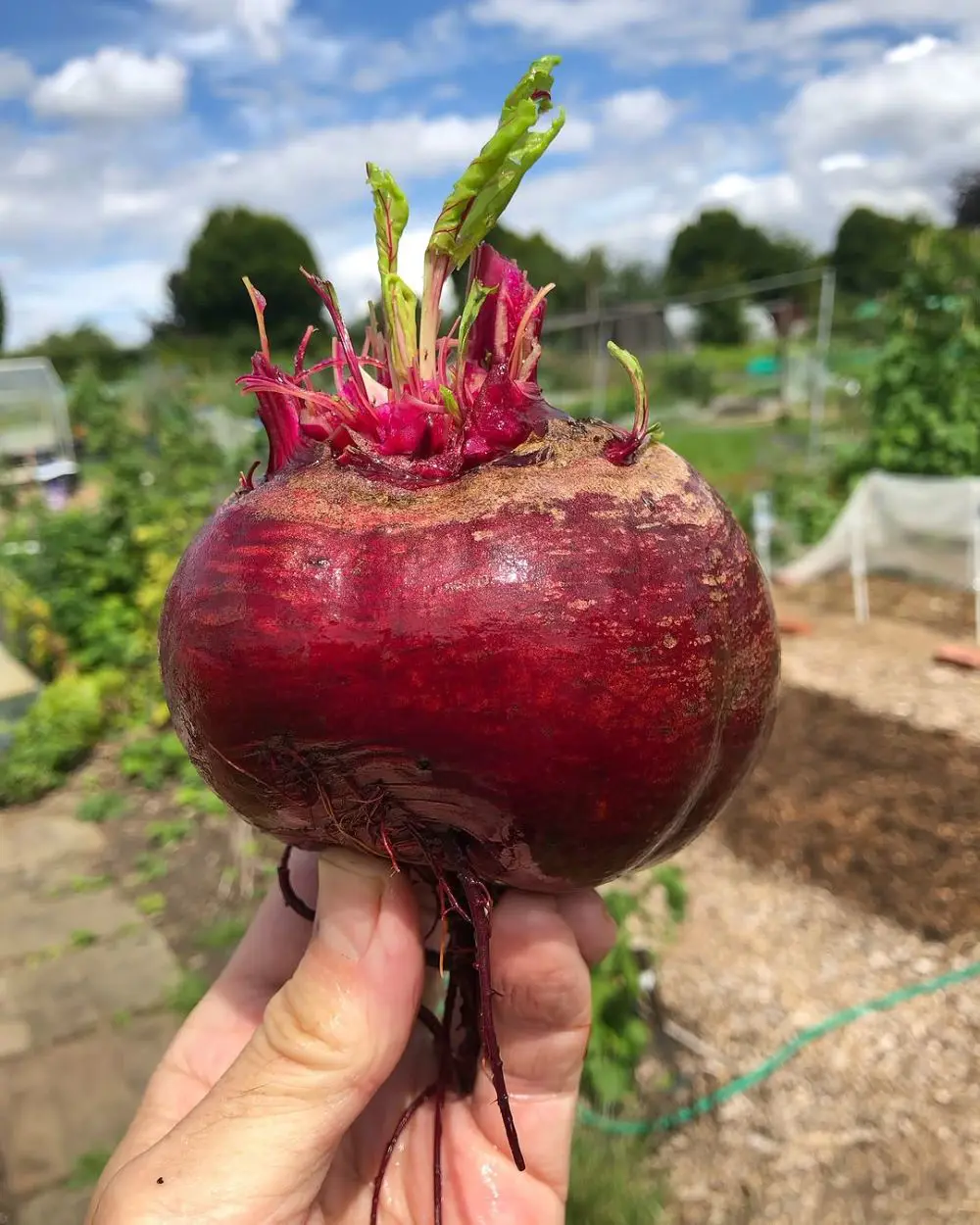How to Use Coffee Grounds For Plants
1. Make Coffee Grounds Into Slow-Release Fertilizer
Used coffee grounds in plants work as a terrific slow-release fertilizer. The grounds are rich in nutrients gradually released into the soil, improving its quality.
They improve drainage, water retention, and aeration, building an ideal environment for plant growth.
How To Use:
To apply coffee ground fertilizer, sprinkle it onto your soil and rake everything gently.
To make the liquid version, mix two cups of brewed coffee grounds in a bucket with five gallons of water and let the solution steep overnight. It can be used afterward to water your plants for an added boost in nutrition.
2. Feed Worms
Coffee grounds are just as useful for vermicomposting. Worms will consume the coffee grounds and excrete vermicasts rich in minerals and nitrogen. These excretions enhance soil quality and work as fertilizers.
Yet, with coffee grounds, moderation must be key. The acidity will have adverse effects on the worms if used excessively. Balance this, though, by mixing coffee grounds with other organic materials inside your worm bin.
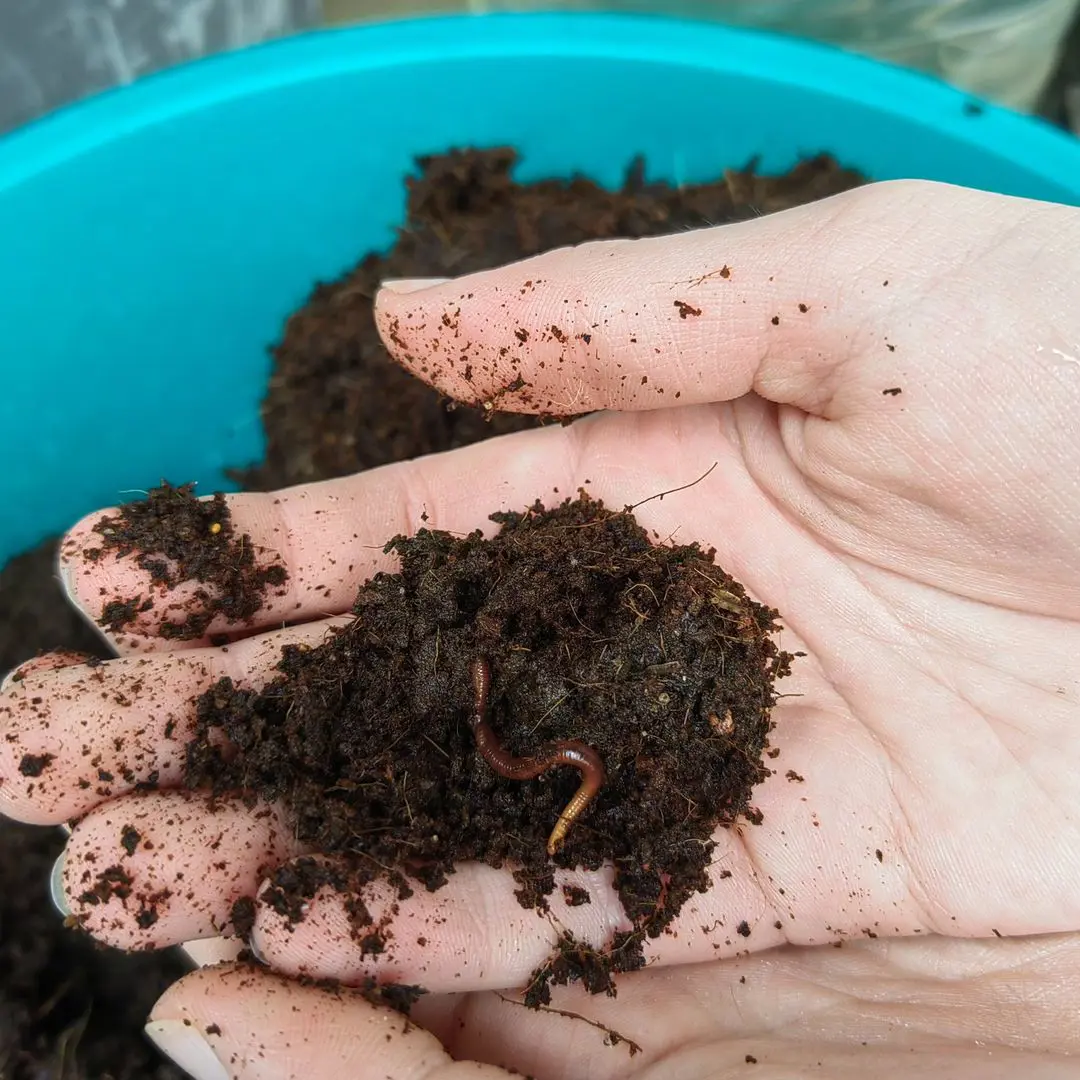
How To Use:
Add coffee grounds to your worm composting with about one cup a week. You can also put in the paper coffee filters, as worms will eat these too.
Do note that the ratio of coffee grounds to other materials in the compost should be 1:4. Anything more than this can kill the worms.
3. Repel Insects Naturally
Your garden will be naturally protected from pests with the help of coffee grounds. The coarse texture of the grounds works great against all types of slugs, snails, and ants.
It creates an uncomfortable barrier for such pests; they do not like crossing it. Besides, the pungent smell of coffee can deter insects because most have a developed sense of smell.
How To Use:
Sprinkle a thin layer of the grounds into the soil to barricade the plants from pests.
This is a very efficient and chemical-free way of saving your garden from unwanted guests.
4. Add Coffee Grounds To Compost
Adding coffee grounds to compost can enhance its richness. The grounds contain roughly 2% nitrogen, which balances out the heavy carbon elements in most compost.
They also contain magnesium and potassium, which help decompose other organic materials in the compost faster. As a result, the compost is ready for use sooner.
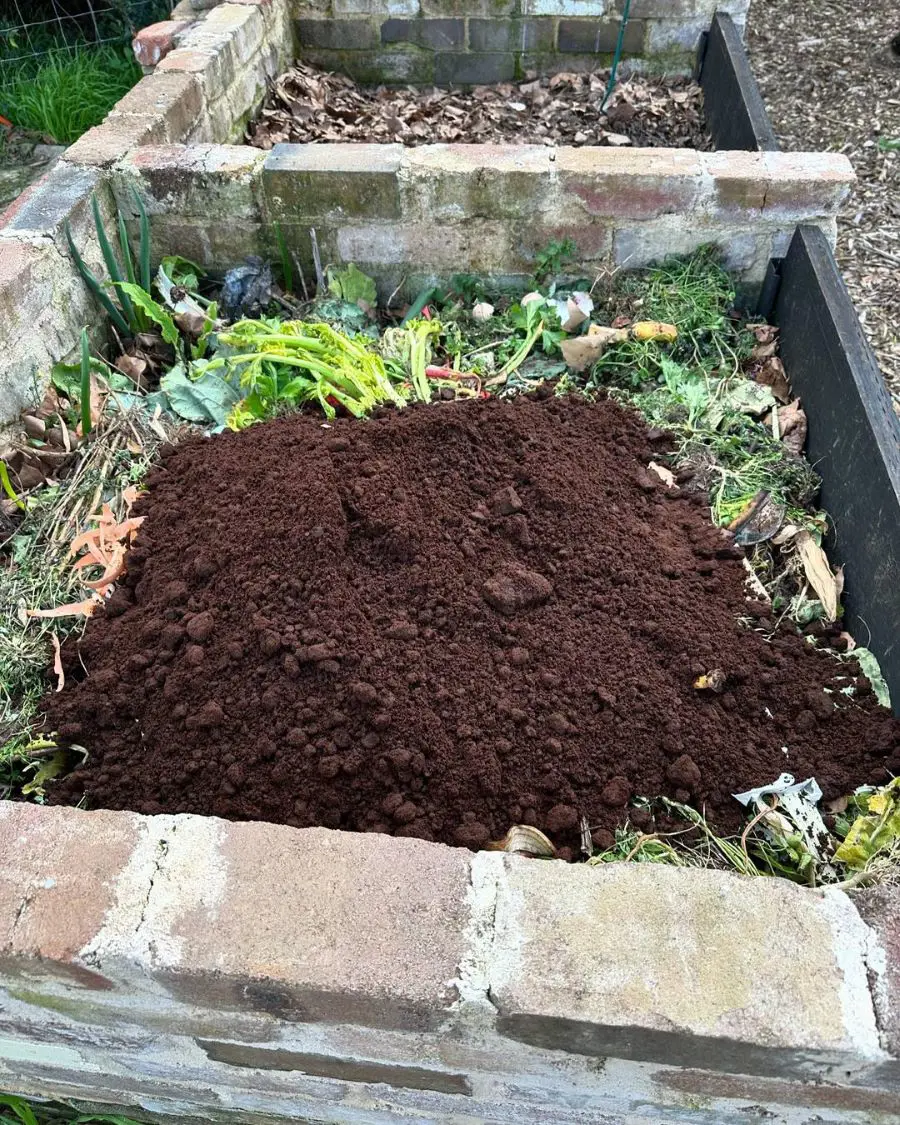
How To Use:
Add coffee grounds to your compost bin with the paper filters for a well-balanced compost.
5. Use As Mulch
Mulch is essential for all plants. It retains soil moisture, reduces weed growth, stabilizes soil temperature, and prevents frost heaving over winter.
Adding coffee grounds enhances all these properties of mulch made from manure, compost, or bark.
How To Use:
If used as mulch, for good results, mix coffee grounds with other organic matter, like leaf mold.
This helps prevent clumping, which could hinder water from seeping through the ground and affect plant growth.
Lightly dust the coffee ground mulch on the plants as some are sensitive to caffeine.
6. Improves soil structure and drainage
Sandy and heavy clay soils have poor structure and drainage. They are unsuitable for growing plants and need amendment.
You can use the coffee grounds to amend them. The coarse texture of the grounds creates holes in the soil, allowing water and nutrients to reach plant roots.
How To Use:
Mix the grounds into the soil like you would with other organic material.
